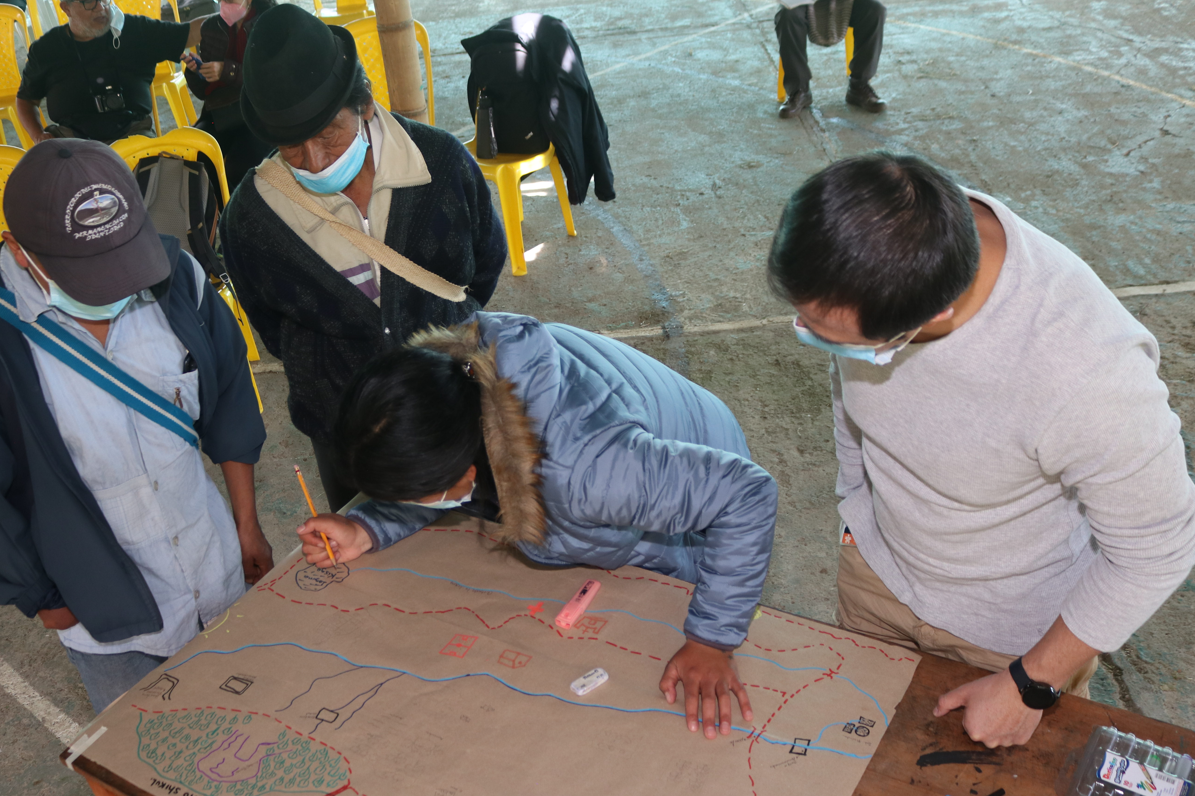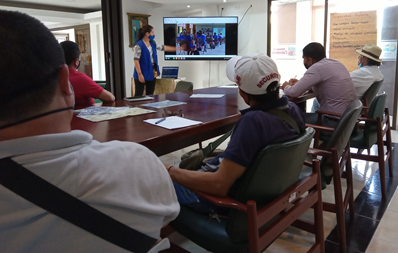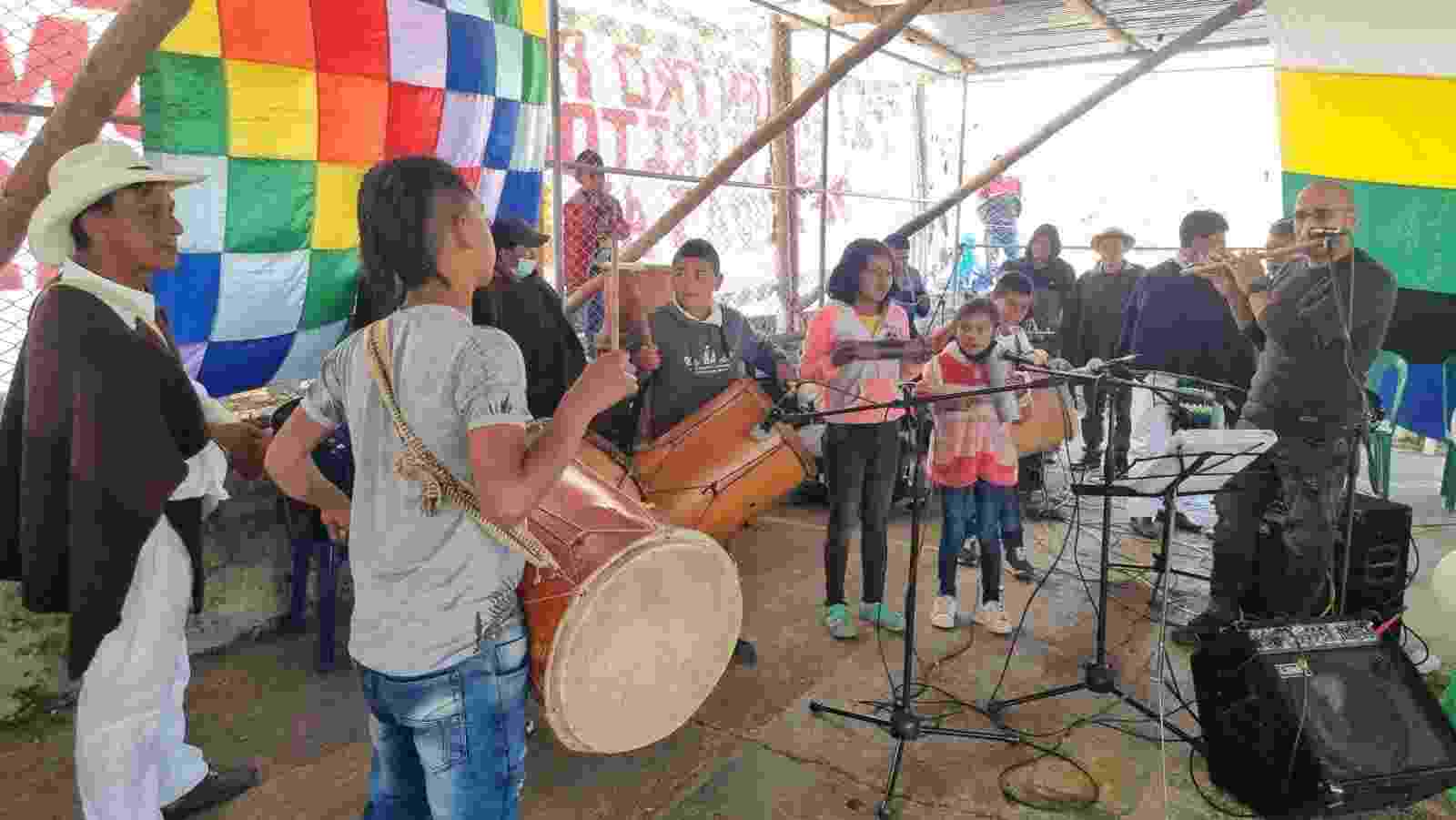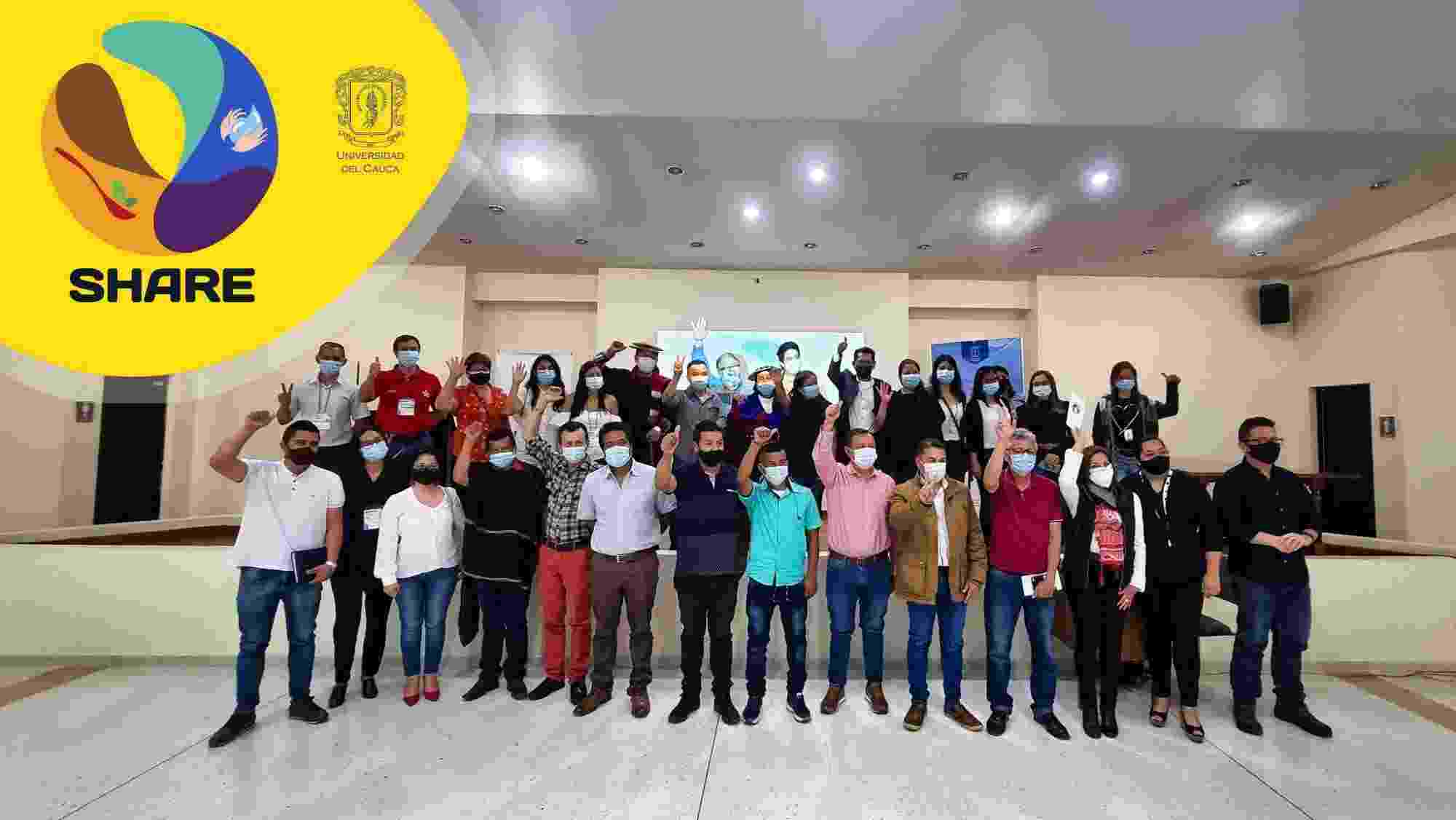Collaboratory update October 2021 | Colombia
An update from our colleagues in Colombia
17 October 2021
Over the past few months our colleagues in Colombia have been getting back up to speed, following disruption due to socio-political protests and military action amidst the ongoing pandemic.
During this period, the team developed a short course on efficient use and saving of water. Aimed at water and sanitation community organisations (CWSOs), the course consists of seven sections, and has been attended by 24 people from FECOSER, a CWSO in Valle del Cauca, so far.


Participants of the social cartography workshop
In July, the team held a social cartography workshop in the Andean indigenous reservation of Kisgó. With a total of 40 participants, this workshop helped to strengthen their relationship with the Kisgó community. By actively forefronting local and indigenous knowledge, the workshop aimed to analyse the ways in which the indigenous Kishu community perceive and represent the occupation, use, and exploitation of natural resources within their territory. Subsequently, the team produced digital maps of the reservation utilising, and validated by, data from the workshop.
In August, a participatory mapping workshop was held in the sub-basin Las Piedras with key actors from the CWSO, ASOCAMPO. For the workshop, mapping and GIS techniques, social cartography, and 3D images were used to identify critical points of socio-ecological importance in the territory that face the greatest risks of food and water insecurity, as well as areas that represent the plural values of the community. Collaborating with local and indigenous peoples of the Upper Cauca River Basin (UCRB) is crucial to our ongoing research and achieving water security for all.


Discussions held as part of the RRF project work
The Rapid Research Fund project, ‘Challenges and opportunities of community water management in the rural area of the Upper Cauca River Basin under the Covid-19 pandemic’, has been completed. A collaborative initiative between the Cinara Institute and community water and sanitation organisations, AQUACOL and FECOSER, the research led to the development of policy recommendations for community water management in rural and peri-urban areas. These recommendations serve a threefold purpose: (i) they will be presented to the Vice Ministry of Water and Sanitation of Colombia as part of a drive to guarantee the human right to water; (ii) they will form part of the training process to build capacity across CWSOs in the basin; (iii) they form part of the advocacy process for furthering support for devolved community water management.
The Hub team at Universidad del Valle took part in the Climate Change Roundtable event organised by the Department of Valle del Cauca, alongside other public and private institutions. The team presented on the Guachal river basin for the UCRB Recovery Committee, which is part of the Valle del Cauca’s Comptroller Office.


Celebrations at the Kisgó maize festival
Members of the Colombia team also attended the maize festival in the indigenous reservation of Kisgó, joining celebrations of the significance of maize for the territory, including seed exchanges, community plantings, talks from community elders, cultural dances, and enjoying delicious food grown within the Kisgó territory. The three-day ritual marks the beginning of a new period and a time of sowing as the rainy season arrives. (Find out more about ‘The Sowing of Water’ in the Kisgó reservation).


The Universidad del Cauca celebrate the launch of SHARE
Finally, in September, the team at Universidad del Cauca celebrated the launch of a complimentary research project to the Hub. Called SHARE, the project is focused on the development of food and water security strategies for the economic reactivation of rural communities, through transfer of technologies and knowledge for innovation as a measure of attention to the COVID-19 emergency in Cauca. Funded by the National Ministry of Science, Technology and Innovation (Minciencas), the project runs until 2023 alongside the Hub. SHARE enables the Colombia collaboratory’s work to reach and impact a wider range of people in communities throughout the Upper Cauca River Basin, and also expands and enhances their partnerships with Colombian institutions.



